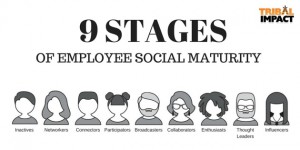The way we work has changed drastically during the COVID response. Marketing executives became very good at managing a virtual workforce, with many reporting overall increases in productivity. This has changed the expectation of how much time is needed for in-person work going forward at all levels of the organization. In response, most organizations are heading to a hybrid work environment. What does that mean for relocation and your marketing executive search at the C-suite and SVP levels?
As the leading boutique marketing executive search firm, we are at the frontlines of this question.
You can contrast what is going on in most areas of the economy with a big push on Wall Street to getting everyone back to the office. That general viewpoint is grounded in the belief that we are underestimating how much knowledge the younger generation gains from interacting with more experienced team members — and the importance of collaboration at and across all levels in the organization.
As an organization, how much flexibility can you maintain for marketers, which allows you to be more competitive in hiring and retaining top talent, while still providing top results and a positive culture?
Recent Case Studies: C-Level Marketing Executives Pass on Seven Figure Opportunities Due to Relocation Requirement
Two candidates for two separate clients recently bowed out of seven figure opportunities because they were unwilling to relocate (in one situation, less than 500 miles).
These are top marketing roles with two of the hottest brands in America. Obviously, our candidates knew relocation was required from the beginning and originally, they were all in. Ultimately, when it was time to make an offer, neither candidate could get their family comfortable moving to a new city when they would continue working from home for an undefined period. At the end of the day, moving multiple school-aged children and disrupting their lives was not worth it. This is very different from what we were seeing before working from home became commonplace during the pandemic.
Here are two examples where the senior level executives, that were each going to lead a team of over 100 people, felt confident that they could be effective without moving. Both corporations believed that relocation demonstrated a commitment to the role, the organization, and most importantly, the culture, where meeting in-person is valued.
Our clients, who are making a very large investment with this individual and trusting them with a tremendous responsibility, see the need for being able to meet in-person and being able to do so on an as needed basis, not just what is scheduled time in the office. Therefore, it lends itself to a local employee. Even after the pandemic is over and they go back to work two or three days per week, the team interaction is critical to the culture and ultimately, the long-term success of the organization.
In this case, both sides are right in what is best for them. Our job is to make sure we are finding talented marketing executives who exceed our clients’ expectations and are willing to relocate during a pandemic. That is certainly no different than it has been for the last 25 years, but the current state of the market has brought some new and unique challenges. This really shows how our views of work, work/life balance, and our priorities have changed during the pandemic.
Has Relocation Changed Forever?
It is always difficult to speak in absolutes but for the foreseeable future, yes, the relocation market has changed. If you want to hire “A” players in your marketing executive search, the more flexible you can be, the better; but you and your executive team know what is best for business results as you look to balance culture with availability of top talent. Regardless of how strong your brand or opportunity is, relocation will limit your pool of marketing executives more now than it ever has previously.
Follow Up Question: Can Senior Executives Effectively Commute In?
We are finding that many big companies have been burned in the past with a commuting executive who got tired of the travel and resigned as a result, so commuting is no longer an option for new hires. That is certainly understandable. But in today’s marketplace, it’s important to balance the quality of the candidate with the necessary “face time” in the office. Requiring someone to be in four or five days per week is far different than asking them to be in only two, which is what is different about a commuting executive today versus five years ago. As we interact with top marketing executives, commuting a couple of days per week is not a problem whereas moving the family and completely disrupting their lives might very well be.
The right candidate will make the commitment necessary to be successful in the role. If you are unsure of the candidate’s commitment, you are making an offer to the wrong candidate.
There are trade-offs to both approaches for both candidates and companies. The main thing is to be aware of what’s important to you (whether an individual or a company) and to think through the implications prior to conducting (or participating) in executive search.
Business & Finance Articles on Business 2 Community(31)





